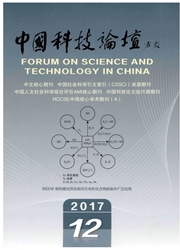

 中文摘要:
中文摘要:
近年来,在国际贸易体制日益由多边转向区域化的背景之下.知识产权国际规则的立法格局和保护水平也在发生变化。首先,知识产权国际立法机制发生重大转变。发达国家正绕过现有TRIPS、WIPO等多边体系,另起炉灶。其努力方向有二:一是借助近年兴起的以TPP、TTIP为代表的区域贸易协定,二是制定以《反假冒贸易协定》(ACTA)为代表的知识产权诸边协定;其次,各方在知识产权保护水平上的博弈更加激烈,一方面由发展中国家发起的“TRIPS递减”运动不可忽视,同时发达国家内部出现的反知识产权强保护思潮也成为新的看点,另一方面,全球知识产权保护水平不断上升的长期趋势并未改变,“TRIPS递增”仍是主流。未来知识产权国际立法机制是维持多边体系还是走向区域化,有赖于国际贸易体制的发展。知识产权保护水平的增减则取决于各方力量的消长。在我国加快实施自由贸易区战略背景下,我们应积极参与有关知识产权国际规则的制定,将知识产权议题置于国际经贸发展大局中,更加开放地看待“TRIPS递增”趋势,并坚持多边和区域并举。
 英文摘要:
英文摘要:
In recent years, while the international trading system is turning from a multilateral mechanism to a regional one, the trend of IPR international legislation is also changing. A movement of international legislation on IPR pushed by developed countries has been bypassing the multilateral system including TRIPS and WIPO. This legislation movement contains two directions: one is through the IPR items in regional trade agreements represented by the US-ROK FTA, TPP and TTIP, and the other is the plurilateral IPR agreement represented by ACTA. These agreements contain many "TRIPS-plus" clauses and show the ongoing efforts of the developed nations to increase the level of IPR protection worldwide. Although the "TRIPS-minus" movement pushed by the developing nations and the "anti-IPR" social ideological trend in the developed countries will continue to play a role in a certain range, the rising trend of IPR protection level in a long term has not changed. "TRIPS-plus' will be the main trend of intemational IPR legislation in the future. The international IPR legislation mechanism, whether would be based on multilateral or regional forum, depends on the development trend of the international trading system. Under the background of accelerating the implementation of the FrA Strategy of China, we should actively participate in the formulation of international IPR rules under the background of international trade and should look at the "TRIPS-plus" trend more openly, both on multilateral and regional levels.
 同期刊论文项目
同期刊论文项目
 同项目期刊论文
同项目期刊论文
 期刊信息
期刊信息
